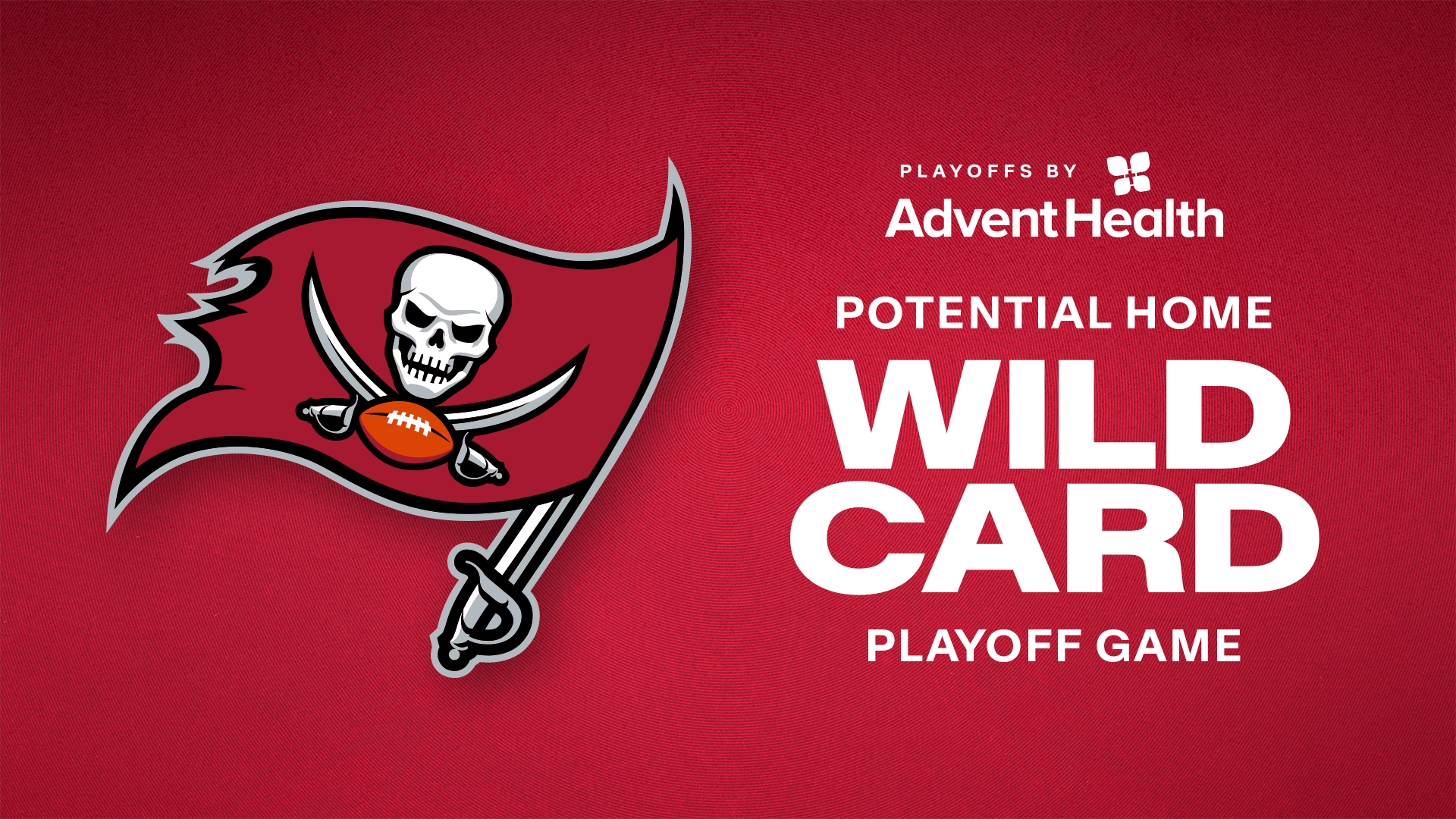One noticeable difference between 2002 and the last two Buc seasons: DT Anthony McFarland was the only starter lost to injury in '02
As thrilling as the 2002 season was for the Tampa Bay Buccaneers, it was bittersweet for defensive tackle Anthony McFarland.
After performing very well for the first half of the season, then overcoming a broken arm to return, ostensibly, for the stretch run, he was hit by the injury bug again. This time it was a fractured right foot, and McFarland was done for the season. He was in San Diego when the Buccaneers won the first Super Bowl title in franchise history, but he watched the game from the sideline.
One key reason there was still a championship for McFarland to share in is that he didn't have a lot of company on that Super Bowl sideline. Compare the Bucs' starting lineup from the first game they won in 2002 (Week Two at Baltimore) and the last game they won (Super Bowl XXXVII): The only difference is McFarland. There were games missed here and there – most notably, quarterback Brad Johnson was unavailable for Games 15 and 16 due to a back injury – but no other starter was out for any real length of time.
This is the kind of note most Super Bowl teams can duplicate after the fact, with the notable exception of last year's New England Patriots. With across-the-board quality depth harder to build in the modern NFL due to free agency and the salary cap, too many injured starters can be difficult to overcome.
That has certainly been part of the story of the Bucs' two post-Super Bowl seasons, a 7-9 2003 and a 5-11 2004. Be assured – nobody at One Buccaneer Place believes that roster health has been the sole problem of the last two seasons. Still, a maddening string of injuries has certainly contributed to the lack of continuity often cited by Head Coach Jon Gruden.
The Bucs finished the 2003 season with six replacement starters for injured players who opened the season in the starting lineup. That included Kerry Jenkins for Jason Whittle at guard, Cornell Green for Kenyatta Walker at tackle, Jameel Cook for Mike Alstott at fullback, Dewayne White for Greg Spires at defensive end and Jermaine Phillips for Brian Kelly, with Dwight Smith moving from safety to cornerback. Also, while Keyshawn Johnson came out of the lineup due to deactivation, not injury, his initial replacement starter, Joe Jurevicius, landed on injured reserve and had to be replaced by Charles Lee.
In 2004, new starters were needed at running back Charlie Garner (Michael Pittman), center (Sean Mahan for John Wade), quarterback (Brian Griese for Chris Simms), defensive tackle (Chidi Ahanotu and then Dewayne White, with Greg Spires moving from end to tackle, for McFarland) and safety (John Howell and then Dexter Jackson for Phillips).
These numbers say the same thing in perhaps a more blunt manner: In 2002, the Bucs lost six starters to injury for a combined 14 games all season; in 2003, the Bucs lost 11 starters (and key reserve Jurevicius) for a combined 62 starts; in 2004, the Bucs lost eight starters and such key reserves as Rickey Dudley and Ellis Wyms for a total of 80 starts.
That's a trend the Bucs would like to see halted in its tracks in 2005.
"If we can keep some guys healthy, that would be nice," said General Manager Bruce Allen. "We're analyzing every one of the injuries we've had this season, along with every penalty will be put on film…it's just mind-boggling."
Here's the rub: While the Bucs will carefully review every injured player's situation, including his preparations before the season and the circumstances of his injury, they may not find any connection, and therefore any overall cure. Luck, of the unfortunate variety, may be the deciding factor.
After all, the players who landed on injured reserve in 2004 ranged from 23 and 24 years old (Will Heller and Edell Shepherd) to 32 years old (Garner and Dudley). The ailing body parts ranged from the shoulder (Wyms) to the foot (Shepherd) and were, more often than not, fractures instead of muscle injuries. Phillips' fractured forearm was certainly not an injury that could have been prevented in the weight room.
"There's no age correlation between them," said Allen. "If you'd seen eight hamstring problems, well, that would tell you something. Ours are broken bones. Edell Shepherd – there's nothing training can do for that. It's a strange phenomenon."
That doesn't mean the Bucs won't try to address the issue, and they will continue to work fervently in the offseason to get their players in top shape for the season. Tampa Bay annually has one of the best player commitment levels to its voluntary offseason work of any team in the league.
"I think Derrick Brooks says it best: 'Any offseason program, what a player puts into it, he's going to get out of it.' We're analyzing it, though. We're comparing notes, and our trainer, Todd Toriscelli, is doing an in-depth study of all the teams in the NFL to see if we can't find something."
**
Ready for a New Home
Most people hate moving. The Buccaneers are looking forward to it.
The team that has called the same spot home since 1976 plans to begin its fourth decade in a brand-new, state-of-the-art facility just to the east of Raymond James Stadium. The Bucs have targeted the summer of 2006 for their much-anticipated move and, according to Allen, some of the current players would love to be around to carry some boxes. "Everything we do is so first class - the stadium, training camp, the way we travel, the airplane, the hotel," said Allen of the Bucs' approach to travel, preparation and accommodations. "That's why we're all looking forward to it, and in some of my conversations with the players they say, 'Don't let me go yet, because I want to see the new facility.'"
The team's current home at One Buccaneer Place is somewhat notorious for its size and age. The coaching staff has used it as a positive, as an element to draw the team closer together, calling it the 'Woodshed.' However, there's no doubt that a top-notch training center would be appreciated by all, and that includes potential incoming free agents.
"Players – and rightfully so – are themselves a business," said Allen. "A player is his own corporation and he's got make sure he maximizes his pro career and that includes having the right environment health-wise, mentally and everything, and that's where the facility become an important aspect of it. The better a player can be prepared mentally and physically, the better he can perform. I want each one of those guys to maximize his individual abilities."
**
Two Picks for Whittle
When the Buccaneers traded veteran guard Jason Whittle back to the New York Giants, his original team, on August 31, both sides described the Bucs' draft-pick compensation as "undisclosed."
The terms were also conditional, meaning that Whittle's playing time in New York would help determine what the compensation turned out to be. During his recent hour-long meeting with the local press, Allen revealed the final verdict.
The Buccaneers will gain a seventh-round pick in 2005 and a sixth-round pick in 2006. Tampa Bay netted that additional pick because Whittle ended up starting all 16 games for the Giants this year.
The Giants were slated to pick eighth in this year's draft. Barring trades or any added supplemental picks, which are usually announced in the spring, that will be the last of 11 picks made by Tampa Bay in the 2005 draft.
























